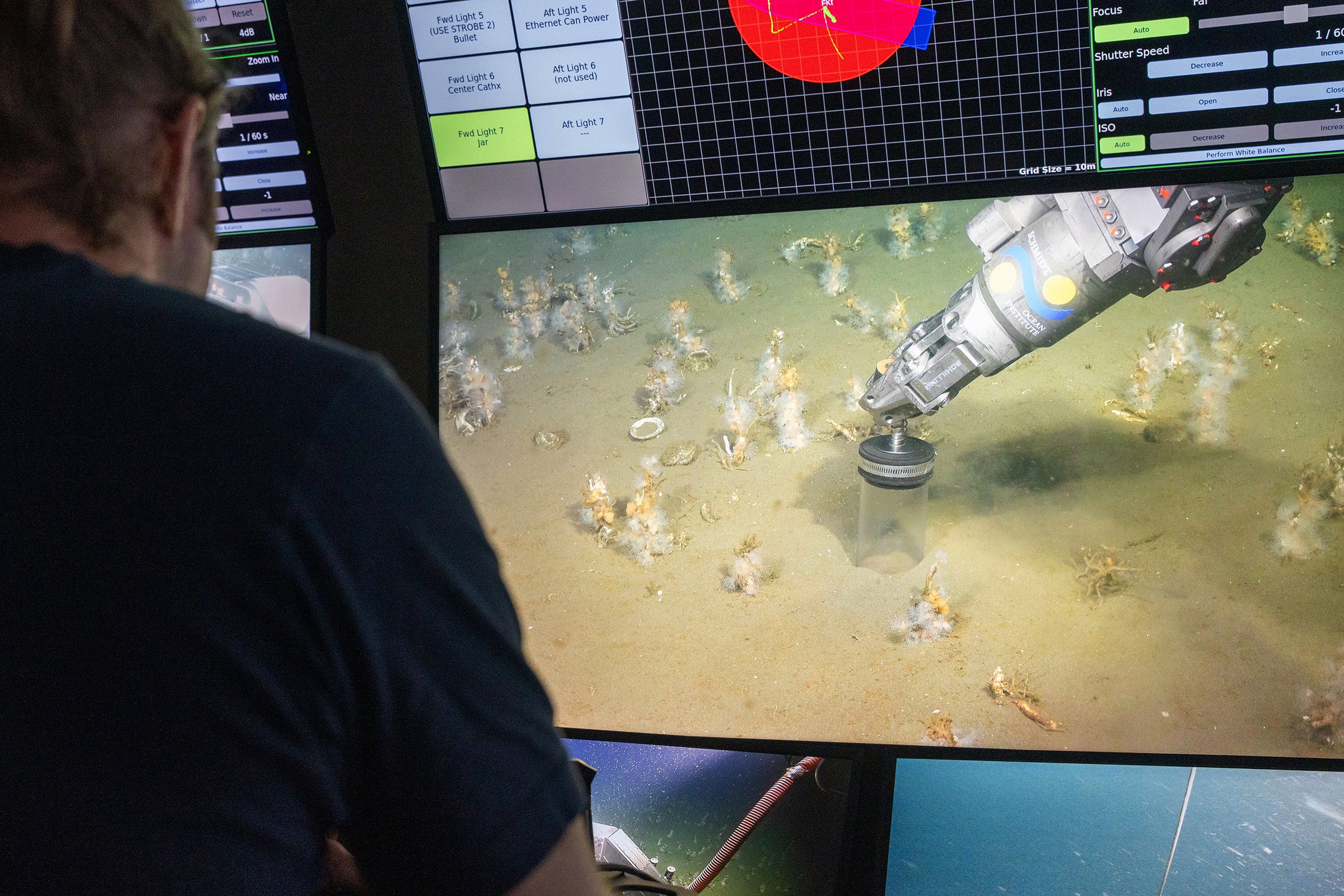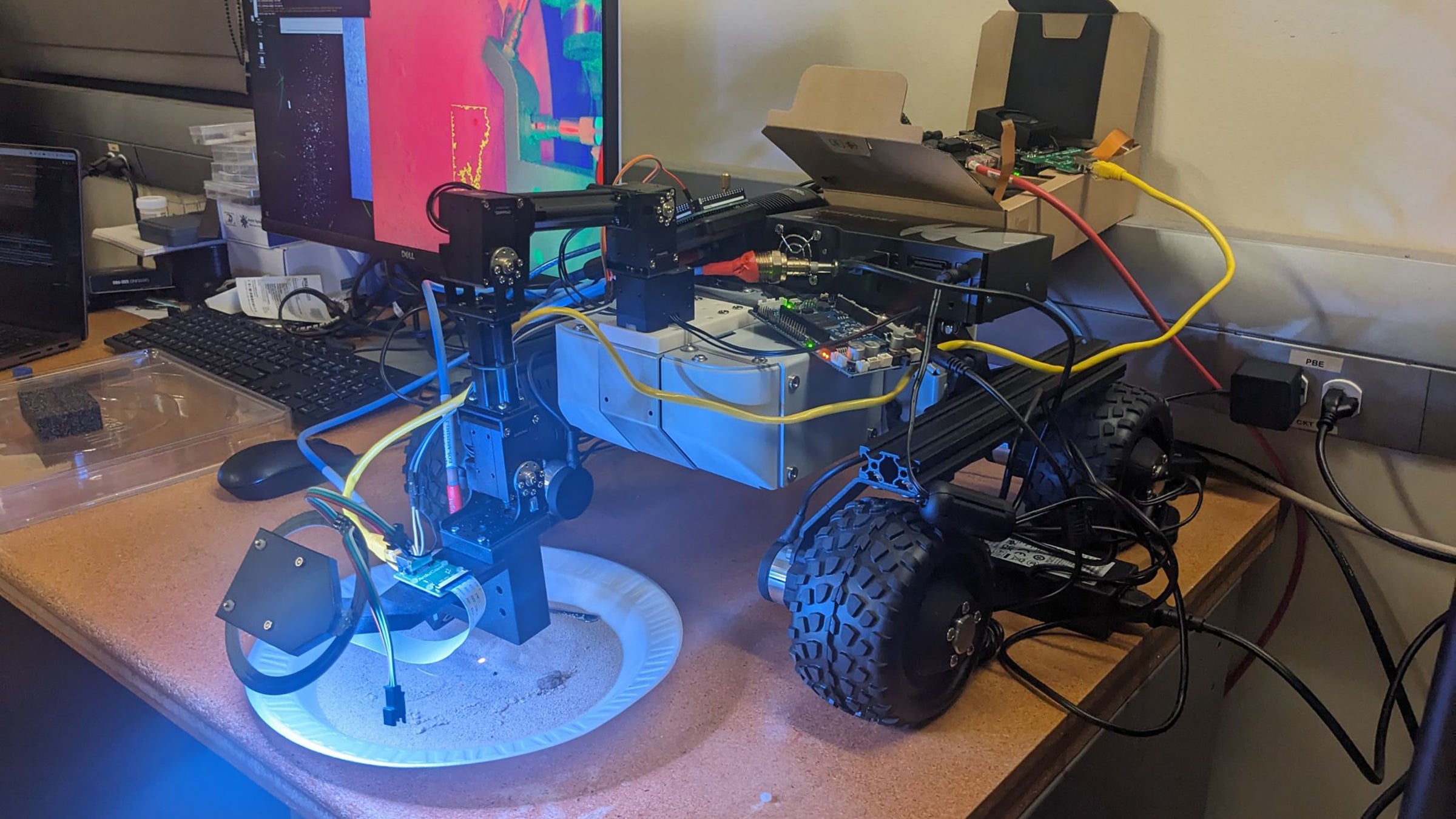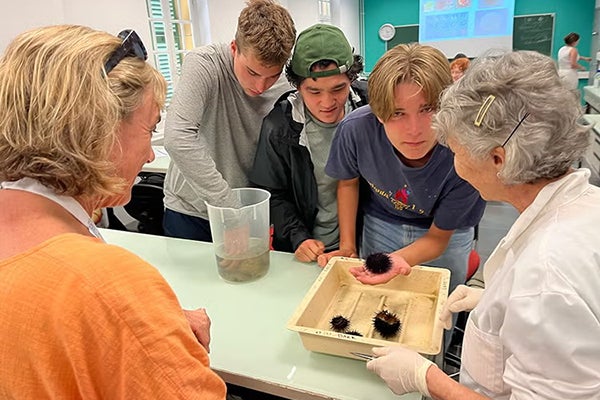The Next 50 Years: A Global Census of Life
Biologist David Hillis aims to discover the 80 percent of species on Earth that scientists know nothing about in the next few decades.

We know absolutely nothing about roughly 80 percent of the different types of life on Earth. Biologist David Hillis aims to discover all those missing species—by some estimates 5 to 10 million—possibly in the next few decades. Sound impossible? He shares his vision for how this would work in this first episode of our new miniseries, The Next 50 Years.
Hillis, along with colleagues Derrick Zwickl and Robin Gutell, published a stunning new tree of life in 2003 based not just on the physical traits but also the genetics of 3,000 species from across all known groups of life. The unique circular layout which first appeared in the journal Science has come to be known as a Hillis plot.
Show Notes
To download a printable version of the Hillis plot and see tattoos and other artistic renderings, visit: http://www.zo.utexas.edu/faculty/antisense/DownloadfilesToL.html
Learn about the computational approaches that enabled this new type of tree of life: https://science.sciencemag.org/content/300/5626/1692.full and https://cns.utexas.edu/news/tree-of-life
Music for today's show was produced by:
Podington Bear - https://www.podingtonbear.com/
Chuzausen - https://freemusicarchive.org/music/Chuzausen
Have you heard our other news? Now you can listen to Point of Discovery on Spotify: https://open.spotify.com/show/4bWQkQ9jBV0cyKeyqeKwdA
TRANSCRIPT
MA: This is Point of Discovery. I'm your host Marc Airhart. Well here we are in the futuristic-sounding year 2020. We're kicking off a new mini-series on the podcast called The Next 50 Years. For the next few months, we'll be asking scientists to share with us their visions of possible futures that help drive their work. First up …
DH: I'm David Hillis. I'm a professor of Integrative Biology at the University of Texas.
MA: Hillis, who received a MacArthur "genius" fellowship in 1999, is one of the world's most respected evolutionary biologists. He said we know of about 1.8 million species of life on Earth. That sounds pretty impressive, right?
DH: … and we think there's probably another 5 to 10 million that we don't know about.
MA: Wow.
MA: In other words, we know absolutely nothing about something like 80 percent of the different types of life on the planet. And actually, Hillis told me the number of unidentified species could be even higher than the numbers he just threw out – that's because estimates for certain kinds of microbes, called prokaryotes, vary wildly. But, however you look at it, there are a LOT of unidentified species. If we could unmask much of Earth's missing biodiversity – call it the dark biome – Hillis believes we could grow better crops, improve human health, fight climate change and much more. That may sound like a stretch, but we'll explore those ideas in a bit. First, though, it's worth asking: Is it even possible to make a complete census of earthly life?
DH: It's not that people haven't been working on this. They've been working for hundreds of years. And so clearly, how we've been approaching the problem isn't sufficient to ever solve it. … And so we need to radically rethink it.
MA: Hillis says genetic-sequencing technology and the Internet could dramatically speed up the process of identifying new species. He envisions hordes of citizen scientists armed with inexpensive, portable genetic sequencers sampling water and soil, mapping the diversity of life around them, and sharing that information through online databases.
DH: So we can do that now. But it largely requires large laboratories, large, expensive equipment. And so it's only done by research scientists with large laboratories essentially.
MA: He says the key will be to shrink sequencing technology down so it's inexpensive and portable. Think of that nifty device on Star Trek called a tricorder.
DH: … now you don't just have hundreds of biologists studying this problem. You have millions of people across the planet studying this problem and collecting the data. ... And so suddenly, people are going to want to go in their backyard and say, what are all the organisms I can identify in my backyard? And how many of them do scientists not know about yet? I think there'll be a lot of citizen scientists who are very excited about that and saying, you know, I want to contribute to that, I want to discover new species and send out and add to these databases.
MA: A study in 2011 estimated that about 5.6 million land-based species and another 2 million ocean-based species have never been identified. And that study didn't even include a group of microbes called prokaryotes. Estimates for the numbers of unidentified prokaryotes range from tens of thousands to millions, many of which are likely to be living on or near land, where most ordinary people live.
DH: … there are undescribed species, literally in almost anyone's backyard. And so this is something that if the technology were there available, suddenly, this is something that will, I think, turn the public on to this and get them excited about biodiversity science.
MA: So what if we do discover millions of new species and fill in many of the gaps in the census of life? I asked Hillis what we might be able to do with all that information. He said, essentially, with biodiversity, knowledge is power. Being able to catalogue where even the tiniest species live and learn about them could provide critical missing information to help us improve our world. For example, imagine you're a farmer and you've got a crop that's just not growing well. You've gotten the minerals and nutrients and water just right, but the plants still aren't doing well. Maybe it has to do with what else is living in the soil.
DH: … it's different complex communities of fungi and bacteria and other microorganisms that are living in the soil. And our inability to even grapple with that and to characterize those systems right now inhibits our ability to be able to do anything about it or to make recommendations about how we can use better agricultural … processes to improve the biodiversity of the soil, which would improve the way the crop grows.
MA: Or think about your own body. You host hundreds of different types of microbes in and on your body. Many of these microbes are beneficial, but some can be dangerous. Hillis says a deeper understanding of these microbes could give us more options for staying healthy.
DH: We get sick as individual humans, and we go into a doctor's office. And most of the time, they can't tell us what's wrong with us. Because most of the time we have no idea what the organisms are that are infecting us even. … And so there aren't even any tests for it ... And so if we know about them, we can actually develop the tests. And if we then find out about them, we can also potentially develop treatments and cures.
MA: Hillis thinks a better understanding of biodiversity could also help us tackle climate change.
DH: … climate change is a problem of having too much carbon in the atmosphere. And one way of fixing that problem is sequestering more of that carbon in plants and in the soil. And we're not very good about doing that. We know some general rules of ways to help improve that. But our ignorance of biodiversity really inhibits our ability to tackle that problem in a very sensible manner.
MA: So it might be more than just planting more trees?
DH: Right, exactly, … it almost certainly is more than planting trees, … most carbon is actually stored in the soil. And we don't know very much about why, what are the organisms that are doing that? We know that it's organic molecules and so it's composed of organisms that are in the soil for the most part. But we know very little about … how to increase that or how to control that. And so all those are examples of things that we could do better if we actually understood more about the biodiversity of the planet that we live on.
MA: Ultimately, to complete a global census of life, it will take more than just better technology. Hillis said the public also needs to see the value of biodiversity; that all life, even human life, depends on it.
DH: … insects is a really good example. Because a lot of people say, Oh, I don't like insects, I'm perfectly happy if they're disappearing. But what they don't understand is that the insects are absolutely critical for pollinating our crops …, they're a food base for lots of other organisms for birds or for mammals that they do care about and if you lose the insects, all those systems collapse. … You can't just sort of pick and choose and say, well I like lions and tigers and bears, but I don't like all these small things. I don't care about these small things. Well, all those small things are why the lions and tigers and bears can exist on the planet.
MA: Next time on Point of Discovery, we'll talk about the future of diet and exercise. Right now, nutritionists tend to make recommendations based on a QUOTE average person.
MB: … so I'm a geneticist. So I, I'm always looking at the ends of the distribution. I don't care about the average response …
MA: Molly Bray and others are working toward a future where each person gets a diet and exercise plan optimized just for them. For example, what kind of diet is going to help a specific person with diabetes best manage their blood sugar?
MB: And we're not going to make that based on you know, the American Dietetics Association recommends blah ...
MA: Point of Discovery is a production of the University of Texas at Austin's College of Natural Sciences. To read a transcript of this show and find out about the music you heard, visit us on our website at pointofdiscovery.org. If you like what you heard, be sure and tell your friends. We're available wherever you get your podcasts, including Apple Podcasts, Stitcher and Spotify. Our senior producer is Christine Sinatra. I'm your host and producer Marc Airhart. Thanks for listening.



